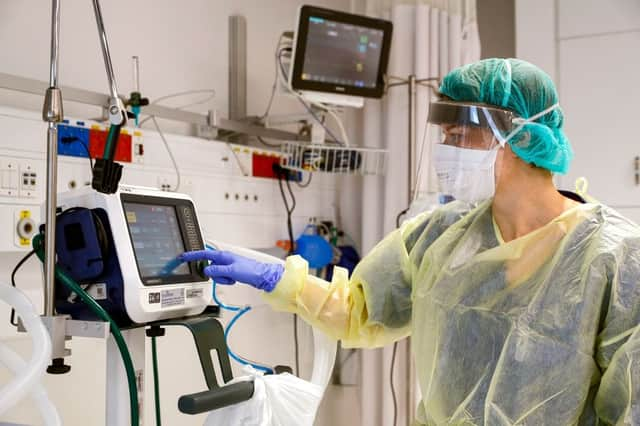This is how ventilators work and why the UK Government needs more as coronavirus cases continue to rise


As Covid-19 continues to spread, the government is doing all it can to fight back against the deadly virus.
One way in which they want to do that is to ensure that hospitals have access to more ventilators to treat those who have been infected with the disease.
But what do ventilators actually do, and how do they work?
Here's all you need to know:
Advertisement
Hide AdAdvertisement
Hide AdWhat do ventilators do?
Ventilators are vital for patients who are affected by severe cases of Covid-19 and other respiratory diseases.
Access to one could mean the difference between life and death.
Simply put, they allow someone to breathe who otherwise may have not been able to do so on their own.
They do this by pumping oxygen into the lungs, and removing carbon dioxide from the body; in essence they are an artificial lung.
Advertisement
Hide AdAdvertisement
Hide AdBut it's not quite as simple as that, and the machines also need to regulate airflow, temperature, humidity, and pressure; they're complex bits of kit.
Why do we need more?
The NHS has been sufficiently equipped with enough ventilators to meet needs over the past few years, but in the wake of the coronavirus, those needs have changed.
With a sudden surge of people suffering from the disease, demand is higher than ever before, and there simply aren't enough ventilators to keep everybody going.
The government is aiming to have "many times" the current number of ventilators; it's looking at aquiring around 20,000 machines as quickly as possible.
Advertisement
Hide AdAdvertisement
Hide AdIt's trying to do this by calling on manufacturing companies to up production to the best of their abilities, and by calling on engineering firms from all sectors to contribute.
"The fact the government is asking manufacturers to make a different product to what they normally make is unprecedented since the World War Two," Justin Benson, from the consultancy KMPG, told the BBC.
"It's a relatively complex piece of equipment with lots of components and a dedicated supply chain. So asking someone who makes a car to produce a respirator would take them some time."
Will it work?
One idea is to ask manufactures like Honda, Rolls-Royce and JCB to turn their attention to ventilators during the crisis, but some don't agree that this is a viable plan.
Advertisement
Hide AdAdvertisement
Hide Ad"It would take too long," Stephen Phipson, chief executive of the engineering trade body Make UK told the BBC.
"We already have companies that build other people's designs for them - everything from alarm systems to signalling systems for trains.
"These are the companies you need, which can place components on circuit boards, do the wiring, testing and assembling. Building cars is a very different matter."
Plus, in the making of any new ventilators, there'd be a maze of red tape for companies to navigate before they could be used.
Advertisement
Hide AdAdvertisement
Hide Ad